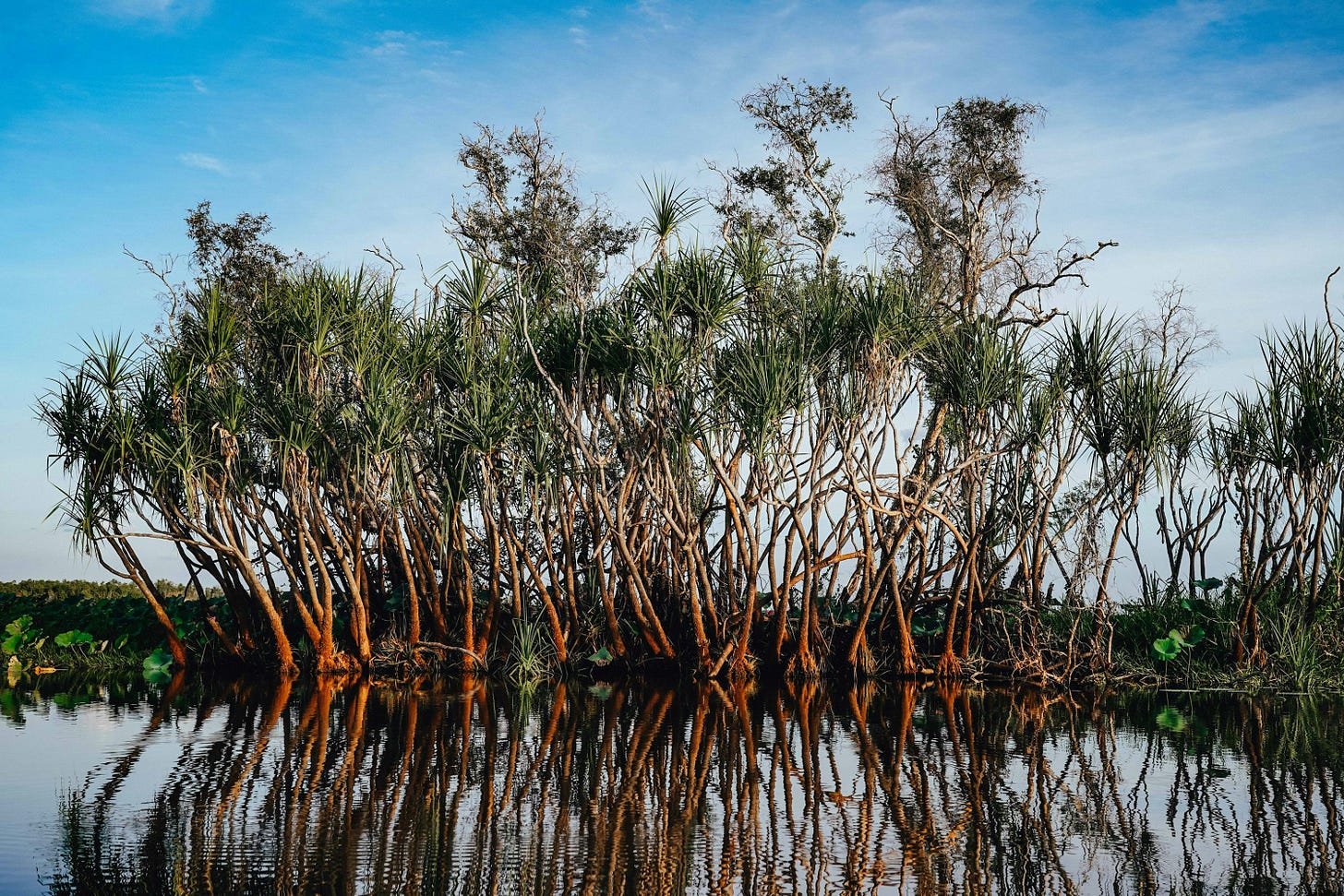“no matter what [a poet’s] subject may be, and no matter what the landscape,
[he] goes ‘beyond society”
My favorite Annie Dillard essay is the one called “Sojourners,” not least because I love the water and the life that grows there. In the essay, mangrove trees sail across seas like homeless wanderers. Sometimes—happenstance—they mesh up with other same-such solitary and unbounded travelers, creating a community of life and growth that seems hardly short of magic, all while verging the brink of waves, far from shore.
It’s a metaphor. We are all sojourners, every one of us on this Earth that spins through space, this planetoid “mangrove island [that] turns drift to dance. It creates its own soil as it goes, rocking over the salt sea at random, rocking day and night and round the sun, rocking round the sun and”—Dillard’s phrasing— “out toward east of Hercules.”
What comfort is this? What comfort in the Eastern Shore saltmarsh that I love, whose very boundlessness offers not a threshold for weary travelers to cross, but a closed door, as it were, drenched grasses and silt-sanded mud marching toward the sea while I remain on the path, trying to take it in? I want to go there, beyond. Dillard’s
“mangrove island wanders on, afloat and adrift. ... It may bob across an ocean and catch on another mainland's shores. It may starve or dry while it is still a sapling. It may topple in a storm, or pitchpole. By the rarest of chances, it may stave into another mangrove island in a crash of clacking roots, and mesh. What it is most likely to do is drift anywhere in the alien ocean, feeding on death and growing, netting a makeshift soil as it goes, shrimp in its toes and terns in its hair.”
I want to go there, beyond; I want to stay home, secure. I cultivate belonging as though my current version of place might wash away at any minute. I spin through life on the heels of hurt and exhaustion, social confusion and neurological overwhelm, deep in a sense of homelessness. I am always seeking a place to rest, always on the edge of finding or leaving it, a mist slipping through my fingers, there and not. I can’t ground. I am liminal, a person on the line. Also, I want to be liminal, and go past the bounds.
Like Margaret Wise Brown, for whom everything was opposite: evening like morning, night like day. She bought a house on a coastal Maine island and hung the walls of her writing space, which was a hallway, with mirrors to reflect and reflect the ocean view. She positioned her writing desk by the window and threw open a door one story above the ground with no steps down. She called it the Door to Nowhere. It was a room out of a passageway, a place from no place.
Poet Larry Levis talks about thresholds, quoting Gary Snyder, who says that “no matter what [a poet’s] subject may be, and no matter what the landscape, [he] goes ‘beyond society.’”
This urge to go beyond what I know, to gaze into the unknown outer marches of my days on the tilting brink of morning and night, plashing through the windswept waters of life, often disoriented, life and death beneath my and all of our feet with every step, like living soil amid the toes of the traveling mangroves. Standing on the edge. Making place from no place. Crossing the boundary between belonging and self. Loving what I see.





Gorgeous Rebecca, thank you💕
This is so lovely. Now I need to go find the Dillard essay....